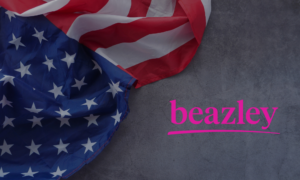By: Christopher Elliott, Senior Contributor at Forbes
I don’t think I’ve seen this much uncertainty in travel since the start of the pandemic. What’s going on? What do you make of it?
Yes, we’re seeing a lot of uncertainty right now, especially with growing concern around new variants. On the flip side, compared to March 2020, we’re more prepared when making decisions regarding domestic and international travel. The potential for trip cancellations, lockdowns, border closures and other interruptions are now all part of daily conversations within the travel industry.
How have things changed for you since the discovery of the omicron variant? How do you expect them to change in the coming months?
We’ve been busier than usual responding to questions about the variant.
Countries are taking a much faster and more proactive approach in trying to combat the spread of COVID-19, which we’re seeing right now with the emergence of the omicron variant. We’ll continue to see disruptions for months, if not years, to come.
At the onset of the pandemic, I recall someone mentioning that customers often have a short-term memory. I don’t think that’s the case here. In fact, I think people will emerge from the pandemic more educated and prepared when it comes to making decisions around travel.
What’s your prediction for travel in 2022?
Travel will continue to grow, and rapidly. Yes, we will travel differently, and our experiences will no longer be the same – but that’s the unique beauty of this industry. As a result of all the travel delays and disruptions throughout the pandemic, I believe travelers will have a more educated and mindful approach to the ways in which they protect themselves and their travel investments moving forward.
How do you think the travel insurance industry is going to adjust?
A lot of work needs to be done within the travel insurance industry. Prior to starting battleface, we saw several signs of how outdated the industry had become. Existing products were no longer working for today’s travelers, and these were unable to respond effectively in the event of natural disasters, pandemics, terrorist attacks, and other disruptions.
To deliver benefits relevant to today’s environment, the travel industry must evolve by adjusting to the new ways in which we travel and how we think about travel,
In the past, you’ve said the one-size-fits-all model for travel insurance doesn’t work anymore. What do you mean by that?
This is a global industry phenomenon. We see insurance companies continue to recycle the same products that were created for travelers 40 years ago. The travel world back then was completely different from how we travel and experience the world today.
So you’re saying recycling doesn’t work anymore in the travel insurance business?
One-size-fits-all, or comprehensive, travel insurance packages were created without any customization in mind, partially because technology and data use were not as advanced at the time.
From the traditional travel agency distribution model to online travel agencies and airlines, these products have been negotiated, renegotiated, and negotiated again, to the point that most of the revenue is eaten up by distribution partners.
We’ve seen up to 80% being paid out to distribution partners up front, leaving legacy insurance companies with no room for lower claim denial rates, product improvement and innovation. In the end, customers are left with products that no longer work, and are filled with more exclusions than functioning policy.
You’ve had two years to create new products that are more customized and address things like global disruptions. What have you learned about people’s insurance needs?
Over the last two years, we’ve researched what works and what doesn’t when it comes to travel insurance.
Travelers are now concerned about disruptions, cancellations, medical exposure, states of emergency, and coverage for their specific activities while away from home. Another interesting change we’ve seen is that customers are now asking the right questions prior to purchase. Do I have the right coverage based on my destination and what I’m planning to do while traveling? What happens if there is a lockdown? While developing their travel itineraries, travelers like to do the same with their insurance policies.
In other industries like airlines, the term “unbundling” is not always seen as a good thing. But there’s no such stigma in insurance. Why not?
We’re presented with more options when booking our travel these days. Yet the travel insurance offerings across the industry are not evolving along with this new trend.
Why is it that we’re offered the same travel insurance product for booking a flight from New York to San Francisco as we are for a flight from New York to Nairobi? These two trips are not the same. Research data shows over 90% of airline passengers do not buy travel insurance. I think this is simply due to not finding products that are relevant to their actual needs and purchase experience.
How can unbundled travel insurance help you as a traveler?
Having the right coverage at the right price. Customizing a policy based on your needs, destination, and travel activities is crucial to making sure you’re well protected and there are no surprises.
What do people need to know about insurance that they don’t? Are they overpaying for their coverage? If so, how?
When we first launched in the United States, I remember seeing a policy that came through where someone insured $20,000 worth of trip cost under our cancellation benefit, with a departure date for the next day. Trip cancellation benefit is the most expensive part of the travel insurance policy, often priced out between 5% to 10% of trip cost. Trip cancellation benefits should be booked far in advance — recommended at the time the booking is made — and allows you to protect your investment against possible cancellations prior to departure.
We contacted the customer. He was traveling on business, flying first class and with an itinerary that was fully refundable, but concerned about having the right coverage for medical expenses, which is often included in travel insurance and part of comprehensive packages. We adjusted his policy. This is just a single example of many where unbundling travel insurance assures you have the right coverage for your trip at the right price.
What’s wrong with the way travel insurance is currently distributed?
Somehow our industry ended up selling the same products without any consideration of the ever-changing global landscape, distribution partners’ value propositions, travel itineraries, destinations, or today’s travelers’ actual needs.
There are a number of reasons behind the lack of innovation, but a major cause is that many companies no longer have meaningful relationships with their customers. Our focus on people creates an inherent connection with our customers and partners. At every point in our customers’ journeys, we obsess over solving their problems, use feedback to add value to their lives, and simply deliver the most relevant products to today’s travelers.
A lot of readers are thinking about traveling this holiday period, some of them for the first time since the outbreak. Other than buying insurance, what’s your best advice?
Have an open mind, be patient and do your research before setting off.
I have to ask you — are you traveling anywhere? And if so, what kind of insurance do you have?
Absolutely, travel is part of my DNA. As of today, I’m researching a trip to Costa Rica with my 10-year-old son. One of the greatest perks of working at battleface is that you and your family are automatically covered while on both business and leisure trips. I also used automatic coverage recently when traveling to a conference in Madrid. Two trips, two very different reasons: I’m proof that customizing travel insurance policies based on actual needs really does work.
Source: Forbes








